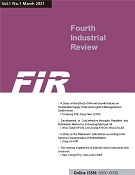- Log In/Sign Up
- E-ISSN2765-7213
- KCI Candidate
 E-ISSN : 2765-7213
E-ISSN : 2765-7213
Does the supervisor-subordinate relationship affect the effectiveness of transformational leadership on organizational commitment?
KIM, Eunmi
Abstract
Purpose - By suggesting relational distance between supervisor and subordinate, this study examines the boundary condition of the impact of transformational leadership and organizational commitment in Korea. Research design, data, and methodology - We collected survey data from employees in various industries in Korea. A total of 241 employees participated in this study. We conducted the hierarchical linear regression and confirmed moderating effects of relational distances (democratic, structural and affective distance) on the relationship between transformational leadership and organizational commitment. Result - The results from 241 Korean employees show that transformational leadership is positively related to organizational commitment. Further, this relationship was moderated by structural distance and affective distance between supervisor and subordinate. Conclusion - This study shed new light on how exercising transformational leadership can help raise employees' organizational commitment. Organizations should be concerned about the various relational distance between supervisor and subordinate.
- keywords
- Transformational leadership, Relational distance, Organizational commitment
- Downloaded
- Viewed
- 0KCI Citations
- 0WOS Citations













